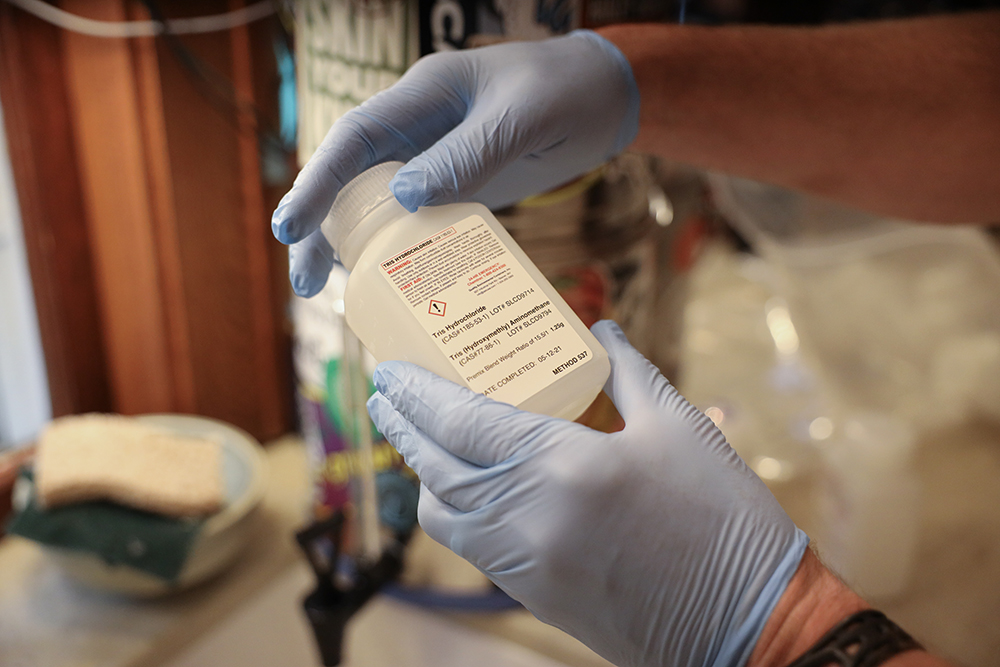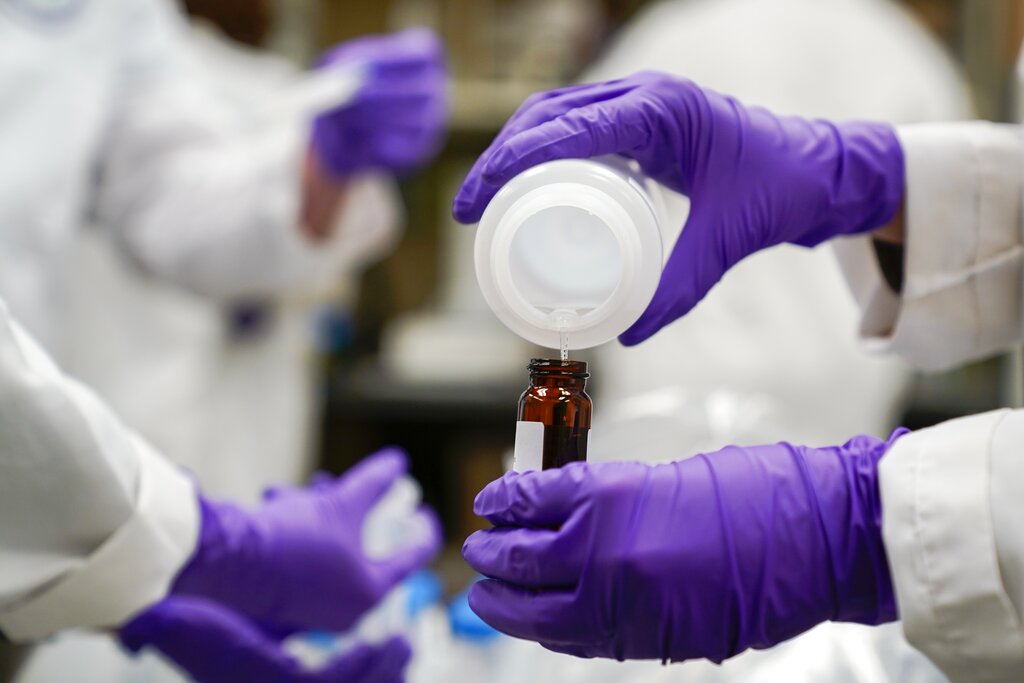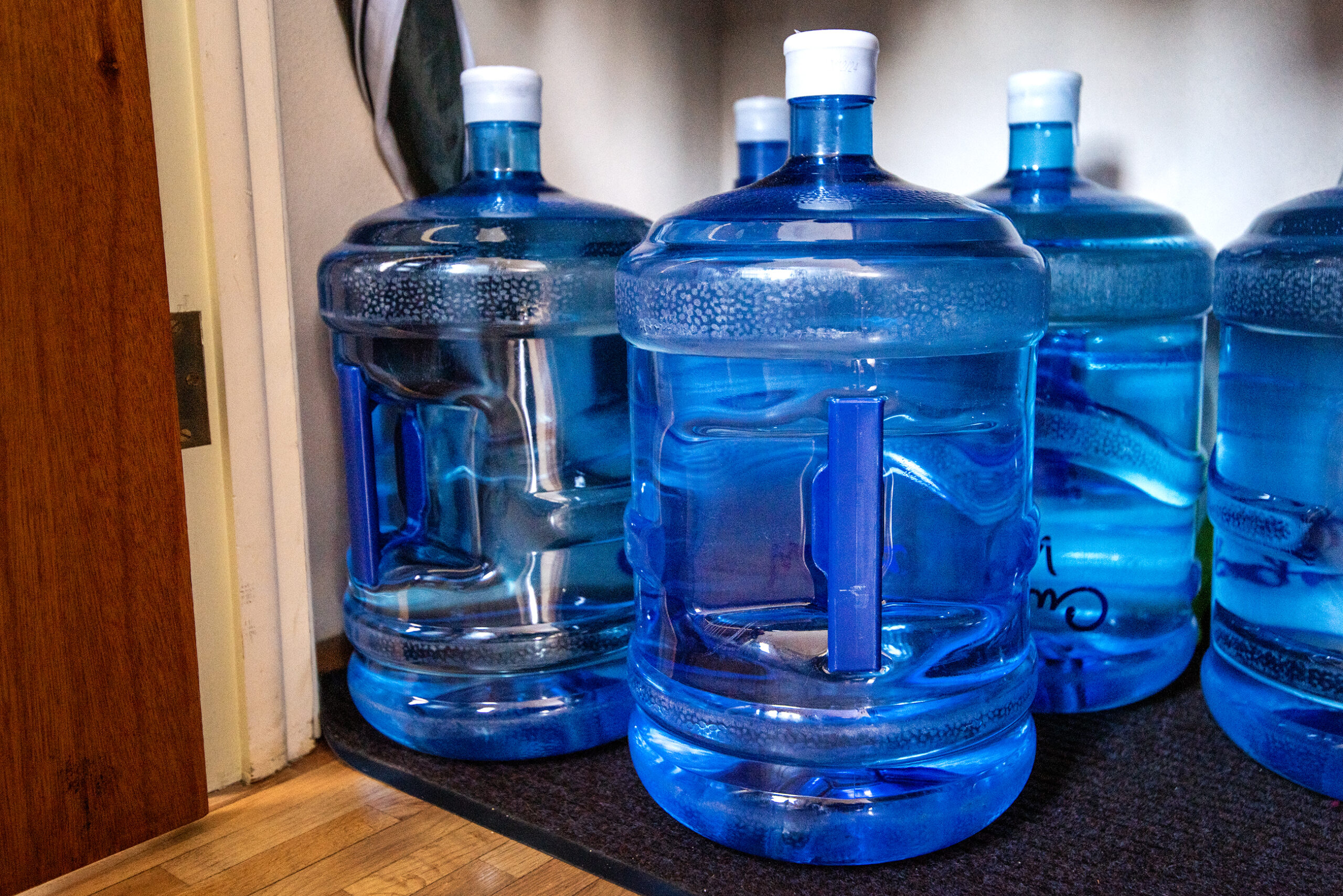A 3M plant in Wausau is providing bottled water to workers after tests showed PFAS levels up to 7 times higher than the state’s drinking water standard in the factory’s private well.
Testing shows the Minnesota-based manufacturer’s Greystone plant in Wausau had levels of PFAS, short for per- and polyfluoroalkyl substances, as high as 520 parts per trillion for two of the most widely studied chemicals. Tests found PFOA at levels of 210 parts per trillion and PFOS at 310 parts per trillion, according to data from the Wisconsin Department of Natural Resources.
Katie Grant, a DNR spokesperson, said the company has notified workers and held meetings about the high PFAS levels.
News with a little more humanity
WPR’s “Wisconsin Today” newsletter keeps you connected to the state you love without feeling overwhelmed. No paywall. No agenda. No corporate filter.
“We are working with the 3M Greystone facility officials on a plan for long term solutions which may include treatment of its well,” Grant said in an email.
The DNR said it’s the only 3M plant in Wisconsin where the agency has collected data on PFAS. The facility has its own well that supplies drinking water to between 50 and 100 employees.
A company spokesperson said the plant had water coolers in place prior to the agency’s sampling.
“When we informed our employees of the sampling data, we also asked that they continue to use the cooler for drinking water,” said 3M spokesperson Grant Thompson in an email.

PFAS are a class of thousands of synthetic chemicals used in cookware, food wrappers and firefighting foam. The chemicals don’t break down easily in the environment. Research shows high exposure to PFAS has been linked to kidney and testicular cancers, fertility issues, thyroid disease and reduced response to vaccines over time.
Wisconsin enacted a drinking water standard of 70 parts per trillion last year for the two chemicals. The combined levels of PFOS and PFOA detected at the plant are 130 times higher than the drinking water standard proposed for the two substances by the Environmental Protection Agency.
The DNR said the agency hasn’t identified anyone responsible for the contamination. The Minnesota-based company manufactures and sells products that contain the chemicals, but 3M has said it intends to phase out PFAS production by the end of 2025.
The news comes as the city of Wausau filed a lawsuit last week against 15 chemical manufacturers and 61 insurance companies over PFAS contamination of its six wells.
The city’s new treatment plant includes a temporary resin filtration system to remove PFAS. Water rates for residents have already gone up almost 65 percent with construction of the new plant.
The temporary system will ultimately be replaced by the city’s plan to build a roughly $15 million treatment system that will use granular activated carbon to remove the chemicals from drinking water. Wausau has borrowed about $17.5 million for the project.
Wisconsin Public Radio, © Copyright 2025, Board of Regents of the University of Wisconsin System and Wisconsin Educational Communications Board.







